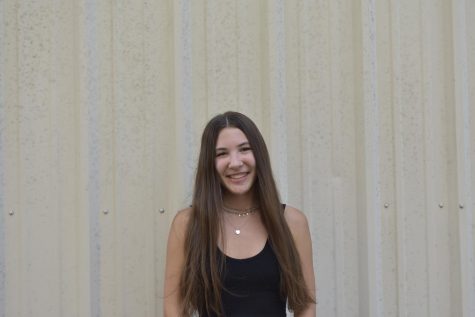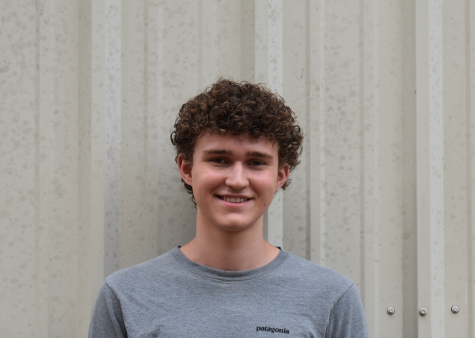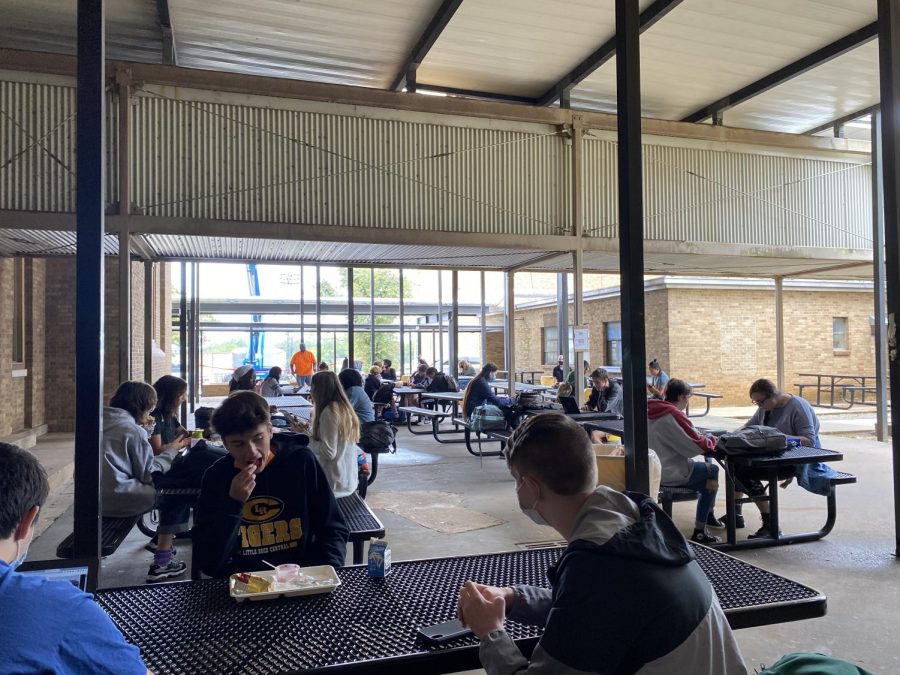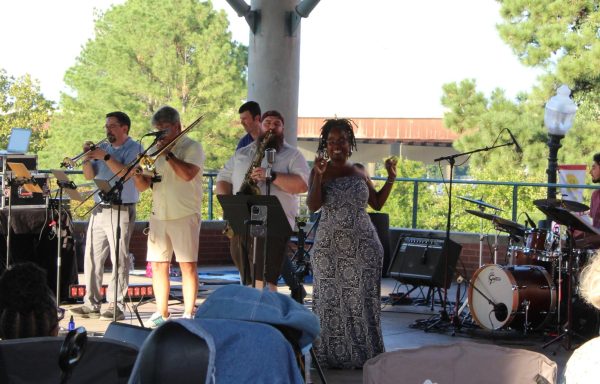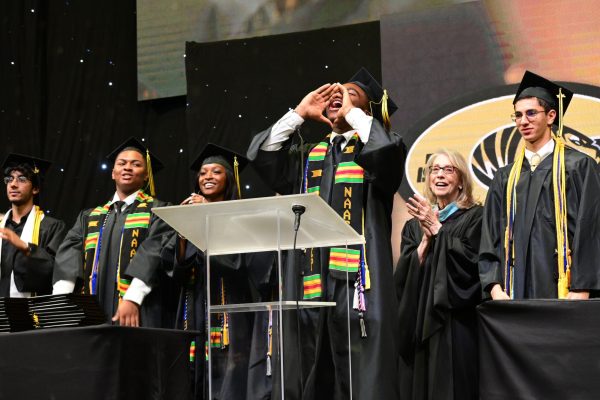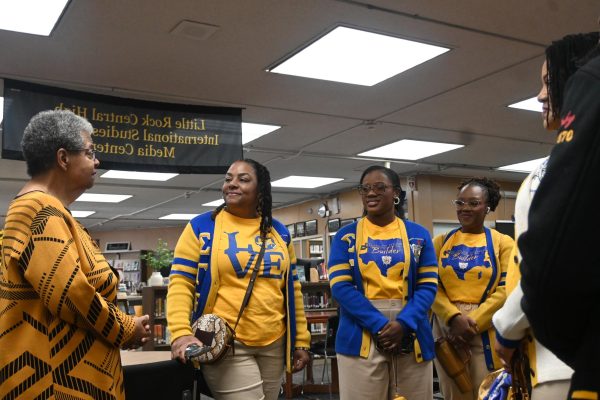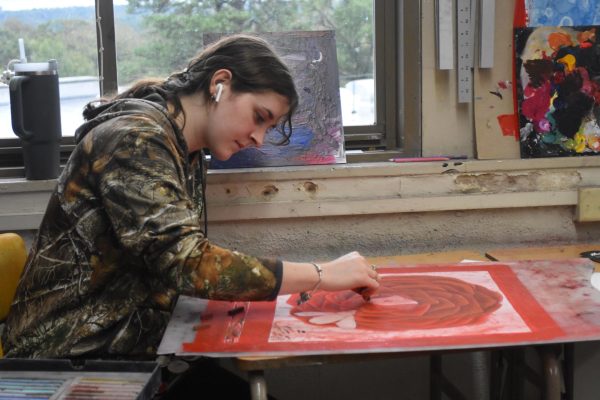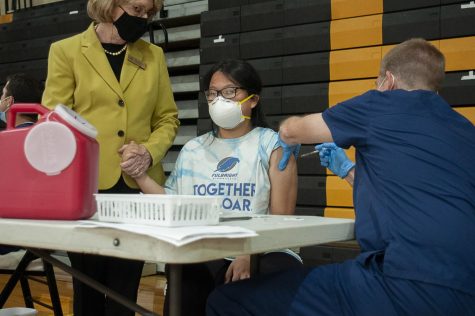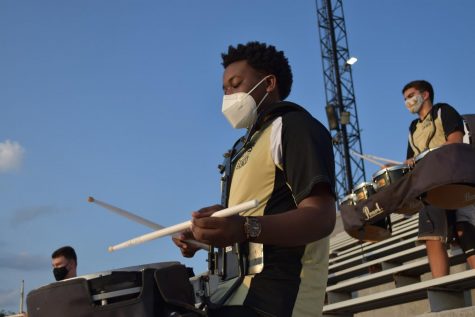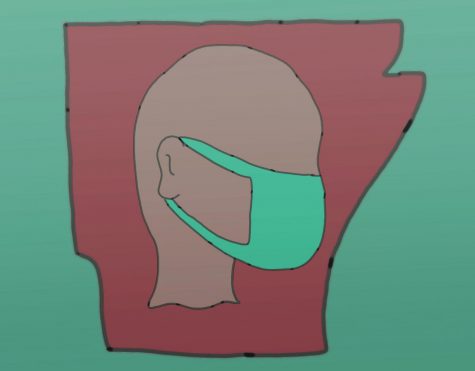New Atmosphere at School Affects In-Person Students
Students eating lunch on the patio must sit diagonally from each other, with both seats empty next to them as well as the one in front of them.
When given a choice of virtual learning or coming to campus, some students chose in-person school for a sense of normalcy only to be faced with the complete opposite. The numerous new rules, social-distancing guidelines, and exclusive assignments through Schoology impacted not only many students’ enjoyment of school, but also their mental health and social lives.
“School now makes me way more anxious. It makes me really depressed not only because of the workload but also the atmosphere. Seeing my friends is a stress-relief, but now we can’t interact with them as much,” junior Greer Robinson said.
Through socially-distanced classroom seating, individual online work in classrooms, and four different lunch periods, the reality of in-person school leaves very little room for maintaining at-school friendships or even making them.
“I enjoy this new system a little more because it allows me to focus better, but my social life has plummeted. My relationships with my friends have changed, and we are less close now,” junior Maggie Smith said.
This new system makes it difficult for students to interact with their classmates and friends, acting as a damper over the school’s normal lively and social atmosphere.
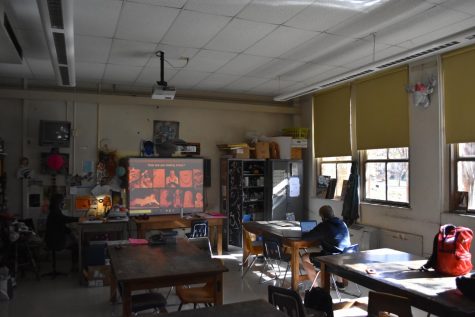
Freshman Ameilia Ross feels as though this new system and atmosphere is, in fact, beneficial to her own personal education.
“I like that we have our own devices at school. It makes it easier to navigate through our classes, and we don’t have to keep up with a bunch of papers in our backpack,” Ross said. “I still do wish that we could all be in-person, though, because it is really difficult to communicate with our other classmates that are virtual.”
The new structure and workload may be helpful to some students, as some teachers aren’t assigning as heavy of a load to students, and most work can be independently done in class.
“I have a good balance of classes, and my teachers are doing a good job about assigning minimal homework right now. The new system is helping, in a way, because we get most of our work done in class,” sophomore Maddie Rowe said.
Many students reiterate how the decreased population of in-person school allows for more individual and personal interactions with teachers, which helps with schoolwork.
Senior Devin Brockwell said, “I like how it’s more one-on-one with the teachers. I get more personal help, and we wouldn’t have as many good discussions in some classes if there was a full classroom like normal.”
Even as the social dynamic of school has changed, some students claim this newly enforced system has its own social advantages as well.
“It gives me an opportunity to interact with people I don’t usually interact with. It may be a bad thing, because you don’t have the people you usually hang out with, but it forces you to branch out and talk to people you usually wouldn’t,” Smith said.
Regardless of the mental and social consequences on many students, it seems to be a trend that in-person students are just glad to have the social interactions that they are allowed and to have the environment of normal school again, as it allows them to at least be more social than doing virtual.
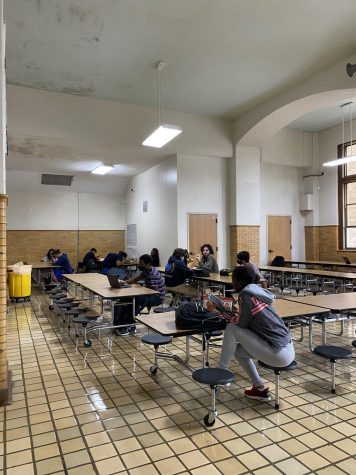
“I think I am slowly recovering from social withdrawal from over the last six months. Seeing people in person and carrying conversations has helped a lot with my social life and my enjoyment of school,” Ross said.
This drastically different school year still affects many freshmen and seniors the most, however, as freshmen are faced with different challenges in their first year and seniors won’t get to experience the senior year they have always envisioned.
“I feel like if I was doing virtual, I would be a lot more depressed. I like being in-person, even though it’s not the same. I really try not to think about my senior year being terrible because of COVID,” senior Devin Brockwell said.
Freshman Luke Beck finds a different experience than he expected during his first year on campus.
“I’m an extrovert, so finally being able to be with people is great. I thought there would be a bigger divide between upper and lowerclassmen, but it’s not really that big. I’ve felt like I’ve gotten the Central experience minus the amount of people,” Beck said.
